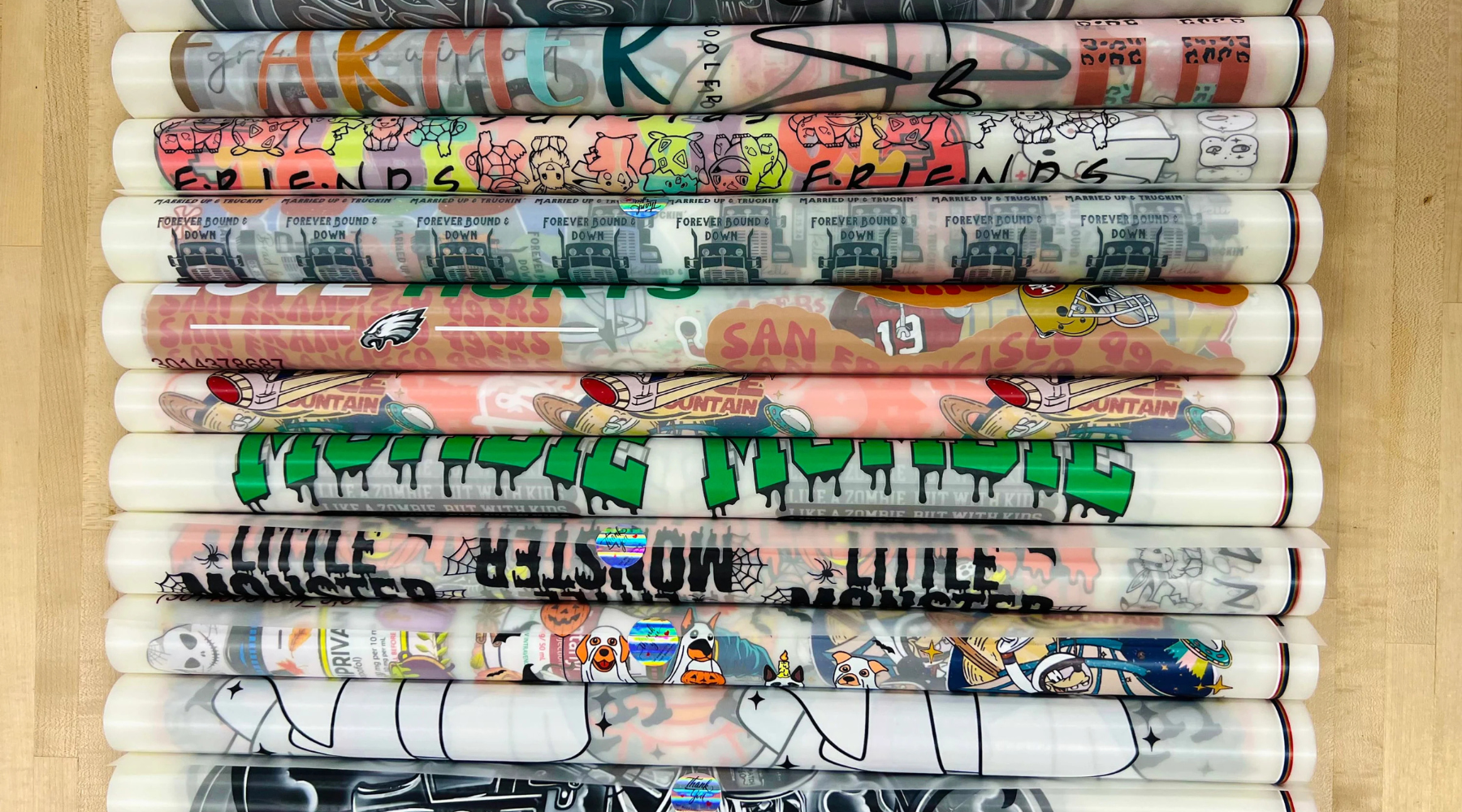
A Beginner's Guide to DTF Printing

A Beginner's Guide to DTF Printing
Introduction to DTF Printing
DTF Printing is revolutionizing the world of custom printing, offering incredible versatility, vibrant colors, and high-quality results. Whether you're looking to print on fabrics, ceramics, or other materials, DTF printing provides a seamless and efficient solution. In this guide, we will explore how DTF printing works, its benefits, and why it's a top choice for beginners and professionals alike.
What is DTF Printing?
The Basics of Direct to film Printing
Direct to film Printing is a cutting-edge method that involves printing designs directly onto a special film, which is then transferred onto a substrate (like fabric or ceramics) using heat and pressure. This process creates sharp, vivid prints that last longer and maintain quality through washes.
Key Features of Direct to film Printing
-
Vibrant Colors: Direct to film printing provides brilliant color quality that stands out on all types of materials.
-
Durability: Prints made through DTF are durable, wash-resistant, and long-lasting.
-
Versatility: This technique can be used on a wide range of materials such as cotton, polyester, and even harder surfaces like ceramic mugs.
-
No Need for Special Equipment: Unlike screen printing, Direct to film printing doesn't require specialized equipment, making it more accessible for small businesses and beginners.
-
Cost-Efficient: Direct to film printing offers a cost-effective solution for both small batches and large-volume orders.
Benefits of Direct to film Printing
Advantages of Choosing Direct to film Printing for Your Projects
-
High-Quality Results: The prints produced by DTF printers are crisp, clear, and vibrant. The method allows for fine details that other printing methods might struggle with.
-
Flexibility in Materials: DTF printing can be applied to a wide variety of materials, making it perfect for creating custom T-shirts, bags, and even home décor items.
-
Eco-Friendly Option: DTF printing uses water-based inks, which are more environmentally friendly compared to solvent-based inks used in traditional printing methods.
Direct to film Printing for Small and Large Businesses
Whether you’re a small shop looking to create custom apparel or a large business seeking a reliable printing solution for bulk orders, Direct to film print offers the scalability and flexibility you need. This process is ideal for businesses looking to streamline their production while ensuring high-quality results.
How Direct to film Print Works
Step 1: Design Creation
Create your design digitally using graphic software. The file is then sent to the DTF printer, where it is printed onto a special film using high-quality inks.
Step 2: Powder Coating
Once the design is printed on the film, it is coated with a special adhesive powder. This powder helps the ink bond to the fabric or other materials during the heat transfer process.
Step 3: Heat Pressing
The printed film is then placed on the substrate (like fabric), and a heat press is used to transfer the design. The heat and pressure from the press ensure that the ink bonds properly, resulting in a high-quality, durable print.
Usage of Direct to film Print in Various Industries
Fashion and Apparel
DTF print is widely used in the fashion industry, especially for custom T-shirt printing, hoodies, and other clothing items. The technology allows for vibrant and durable designs that withstand frequent washing without fading.
Home Décor
From custom pillow covers to decorative towels, Direct to film print enables you to create unique home décor items with personalized designs. The process works on a variety of textiles and other materials, making it an excellent choice for personalized gifts.
Promotional Products
Businesses often use Direct to film print to create custom promotional products such as tote bags, hats, and banners. This versatile printing technique ensures high-quality branding materials that catch attention and build brand identity.
Direct to film Printing vs. Other Print Methods
Screen Printing vs. Direct to film Print
While screen printing is great for large runs, Direct to film print is the ideal choice for small to medium batches. Unlike screen printing, which requires complex setups for each color, Direct to film printing is faster, more cost-effective, and doesn’t require pre-production preparation.
Direct to film Print vs. Direct-to-Garment (DTG)
Unlike DTG printing, which prints directly onto fabrics, Direct to film print uses a film transfer method that can be applied to a wider variety of materials, including hard surfaces. DTF is also known for its ability to print on darker fabrics without compromising quality.
Common Applications of Direct to film Print
-
Custom Apparel: Personalized T-shirts, sweatshirts, and hats.
-
Home Goods: Customized pillowcases, towels, and blankets.
-
Promotional Merchandise: Logo printing on bags, mugs, and more.
User Reviews
Customers who have used Direct to film print have been impressed with the crisp, vibrant designs and long-lasting quality. Here are some highlights:
-
"I was able to create personalized T-shirts for my small business, and the colors are incredible!"
-
"The print quality lasts even after multiple washes – highly recommend for custom orders."
-
"I love how easy it was to get started with Direct to film print for my home décor projects."
Conclusion
Direct to film print offers an innovative, efficient, and affordable solution for high-quality printing on a wide range of materials. Its versatility, durability, and ease of use make it an excellent choice for beginners and professionals alike. Whether you're starting a small custom printing business or just want to add a personal touch to your belongings, Direct to film print is the perfect solution.

Comments
Leave a comment